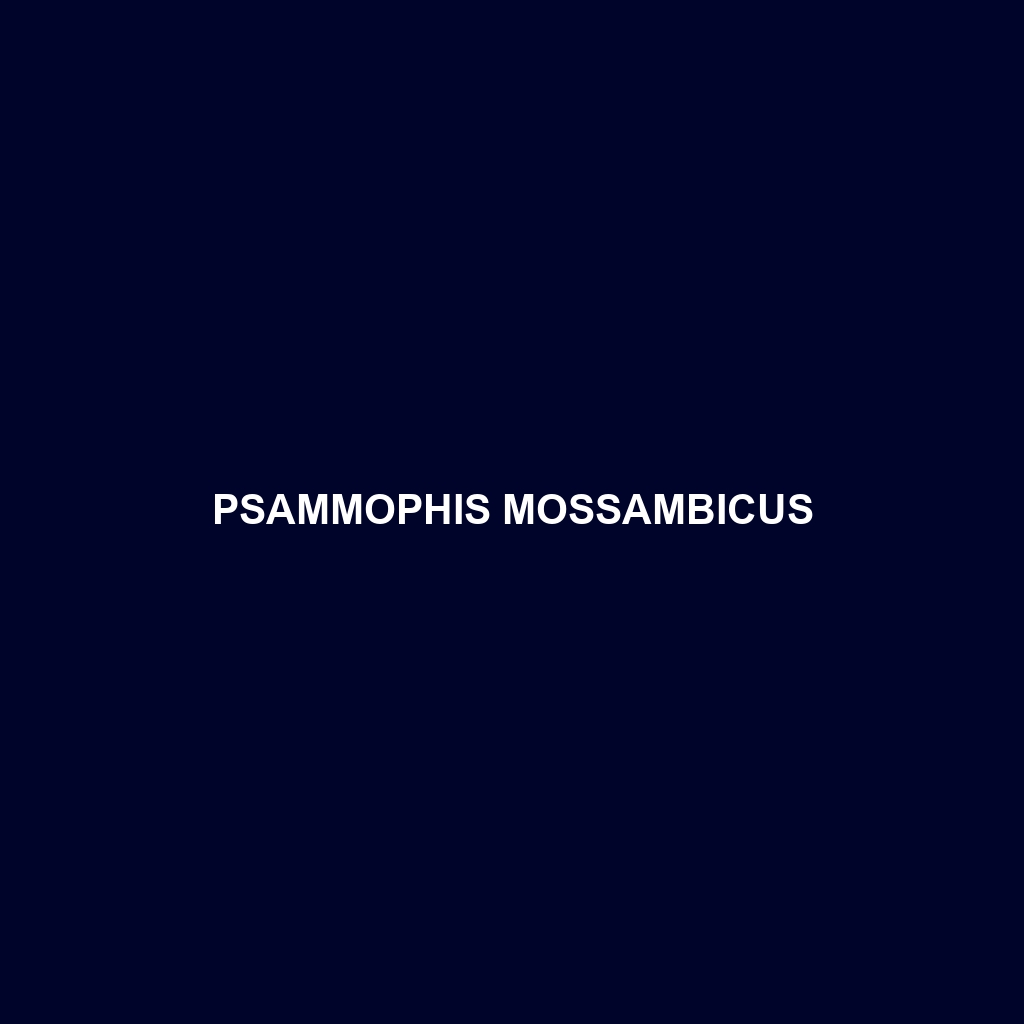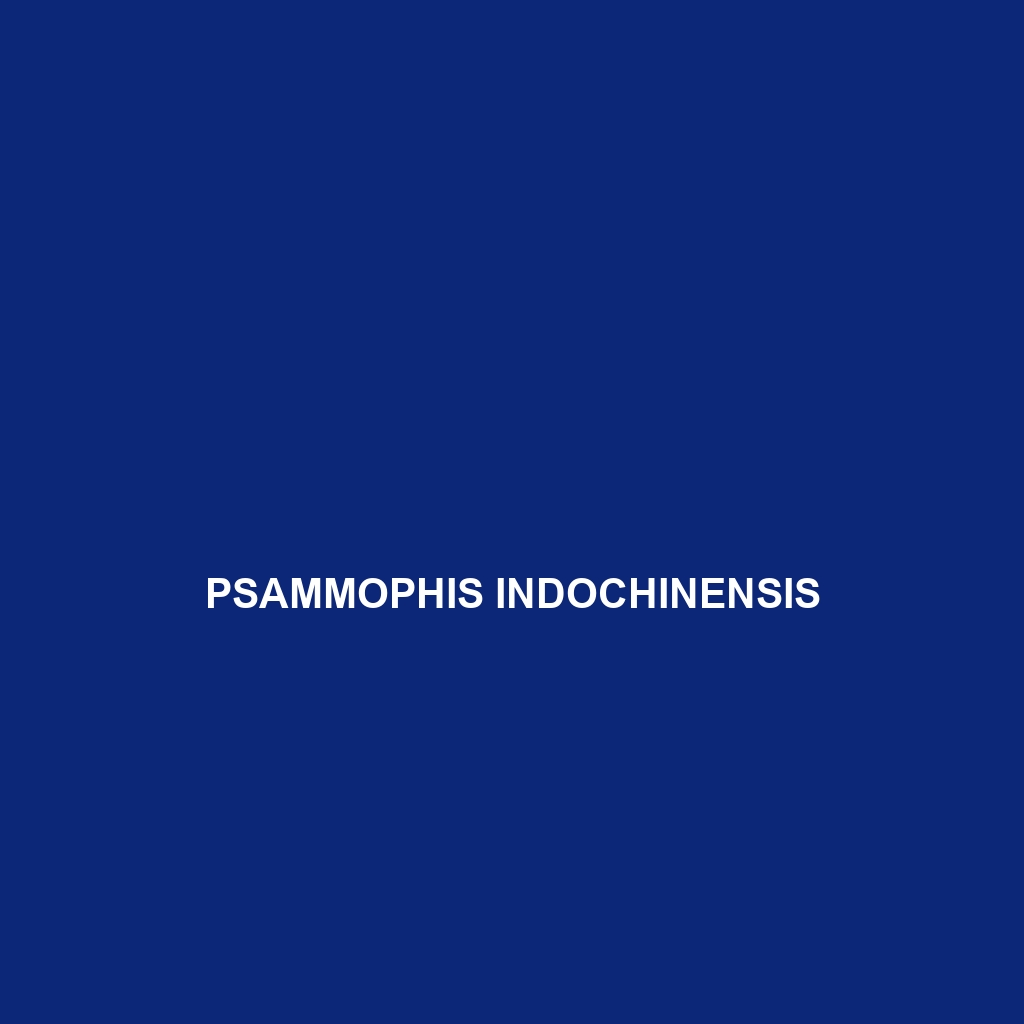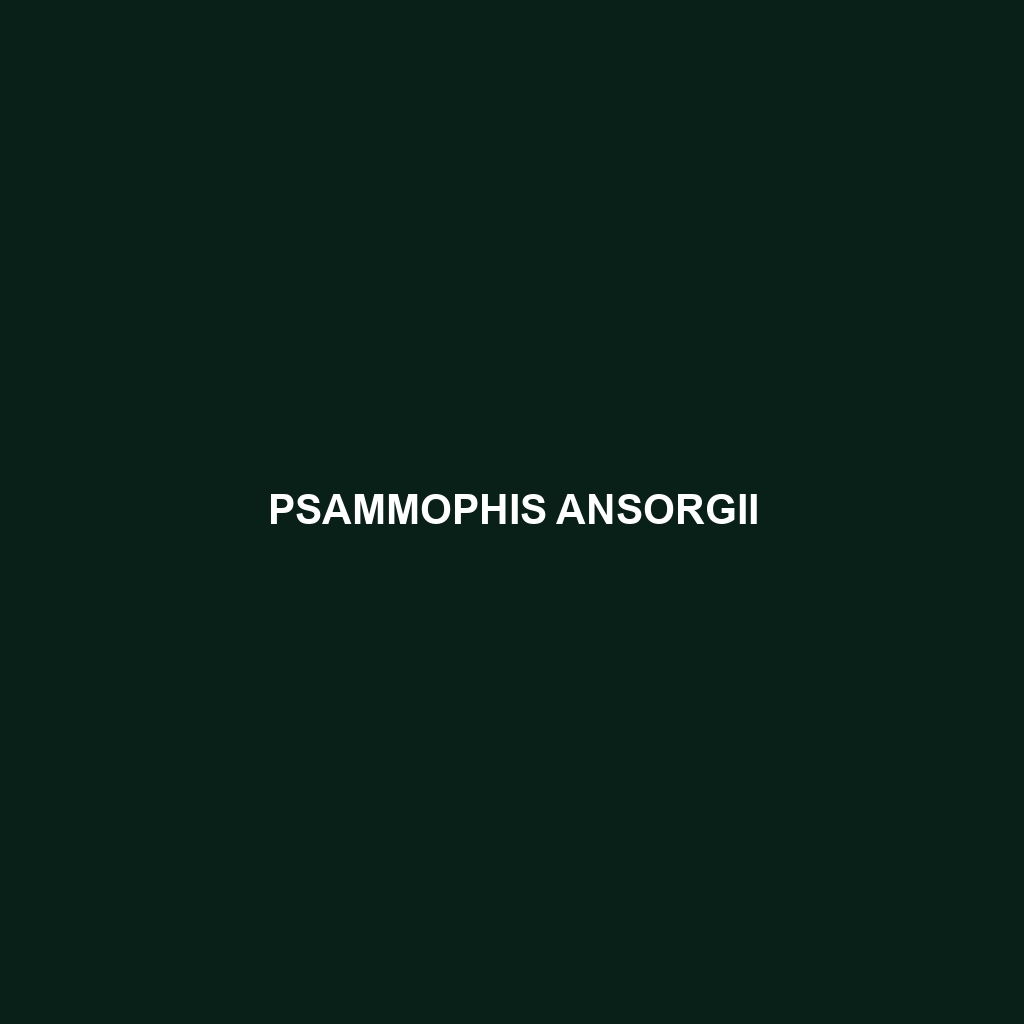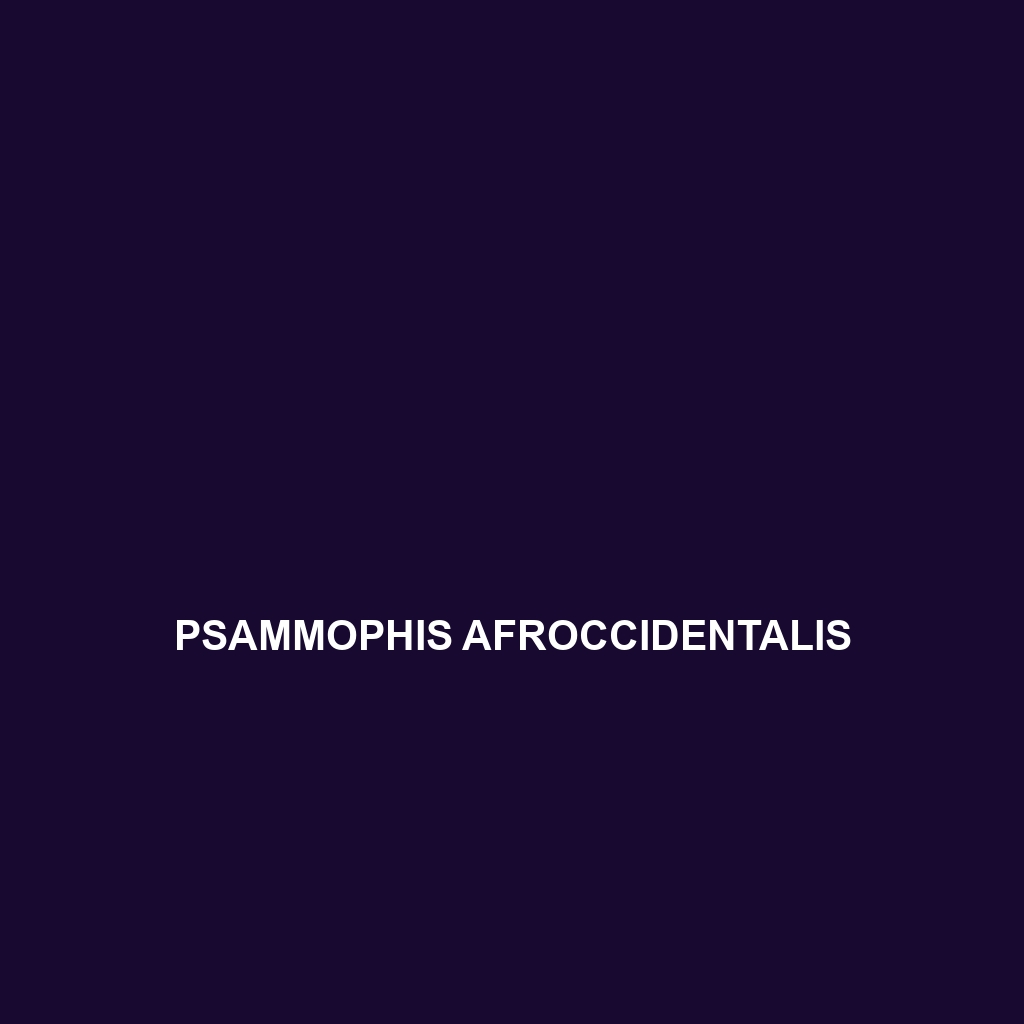<strong>Psammophis phillipsii</strong>, commonly known as Phillips' sand snake, is a slender, 1.2 to 1.5-meter-long reptile found in Africa's arid habitats, characterized by its distinctive brown and yellow coloration with dark crossbands. This carnivorous snake demonstrates impressive speed and agility, predominantly feeding on small mammals and lizards while playing a crucial role in maintaining ecological balance.
Tag: predator-prey dynamics
Psammophis orientalis
The Psammophis orientalis, or Eastern Sand Snake, is a diurnal predator thriving in warm climates like savannas and grasslands. Known for its slender body, distinctive sandy coloration, and impressive speed, this non-venomous snake primarily preys on small mammals, birds, and lizards while playing a vital role in maintaining ecosystem balance.
Psammophis mossambicus
Discover the Mozambique Sandsnake (Psammophis mossambicus), a carnivorous and insectivorous species thriving in the warm savannas and tropical rainforests of southeastern Africa. Known for its slender body, distinctive coloration, and fascinating behaviors, this agile snake plays a vital role in controlling local ecosystems while exhibiting remarkable adaptability in its natural habitat.
Psammophis indochinensis
<b>Psammophis indochinensis</b>, also known as the Indochinese Sand Snake, is a slender, nocturnal species native to Southeast Asia's tropical habitats, featuring a mix of browns and yellows with darker bands for camouflage. This carnivorous snake primarily preys on small mammals and lizards, playing a crucial role in its ecosystem as both a predator and prey.
Psammophis crucifer
<strong>Psammophis crucifer</strong>, commonly known as the <strong>Crossed Sand Snake</strong>, is a slender, diurnal snake typically measuring 70-90 cm long, adorned with pale yellow to beige scales and distinct dark cross-like bands. Thriving in a variety of habitats across eastern and southern Africa, it preys on insects and small vertebrates while playing a crucial role in maintaining ecological balance.
Psammophis biseriatus
The <b>Banded Sand Snake</b> (<i>Psammophis biseriatus</i>) is a striking African serpent known for its beautiful alternating dark and light bands, reaching lengths of 50 to 100 centimeters. Thriving in savannas and dry grasslands, it plays a vital role in controlling rodent and lizard populations while exhibiting fascinating behaviors like diurnal hunting and unique courtship displays.
Psammophis ansorgii
<strong>Psammophis ansorgii</strong>, commonly known as Ansorge's sand snake, is a slender, diurnal snake native to Africa's tropical and subtropical regions, thriving in savannas and sandy habitats. This carnivore feasts on small mammals and reptiles, employing quick strikes for prey capture, while playing a crucial role in maintaining ecological balance as both predator and prey.
Psammophis aegyptius
Psammophis aegyptius, commonly known as the Egyptian grass snake, is a slender, agile, diurnal predator native to Northern Africa, thriving in arid habitats like savannas and deserts. With a unique pointed snout and large bulging eyes, this carnivorous snake feeds on small rodents, birds, and lizards, playing a critical role in its ecosystem by regulating prey populations.
Psammodromus occidentalis
<b>Psammodromus occidentalis</b>, commonly known as the western psammodromus, is a slender lizard native to the dry scrublands and grasslands of Spain and Portugal, measuring 10-15 cm in length. Adapted to sandy environments, this insectivorous species exhibits remarkable agility and burrowing abilities, playing a vital role in controlling insect populations and maintaining ecological balance.
Psammodromus hispanicus
<b>Psammodromus hispanicus</b>, commonly known as the Iberian sand racer, is a slender, diurnal lizard found in the southeastern regions of Spain, thriving in warm, sandy habitats. With a striking coloration and impressive agility, it primarily feeds on insects and plays a crucial role in regulating local ecosystems.









